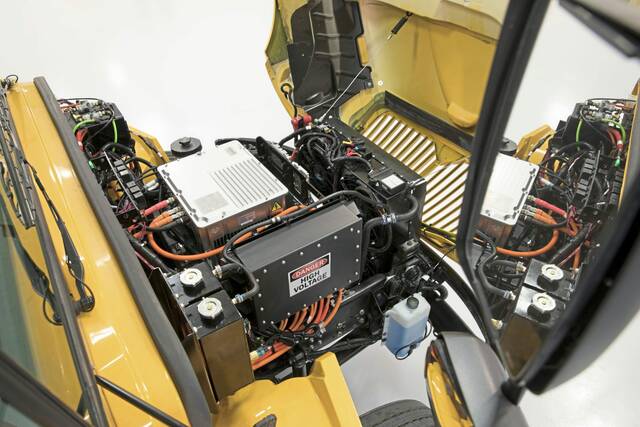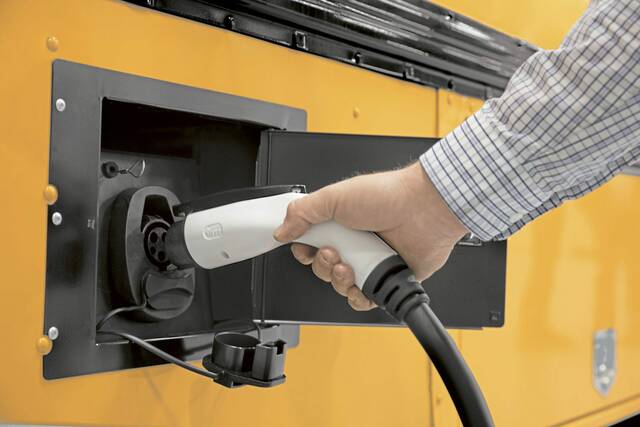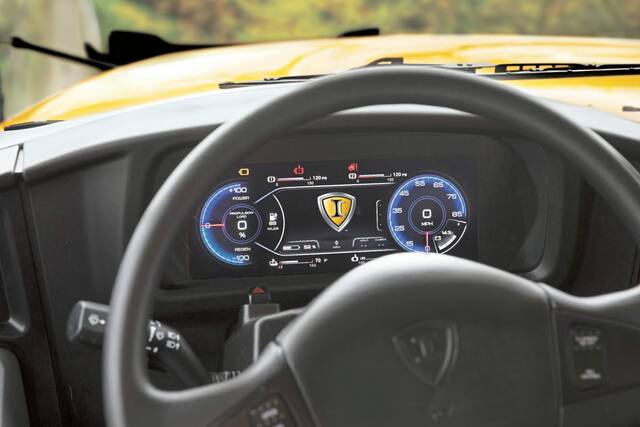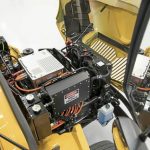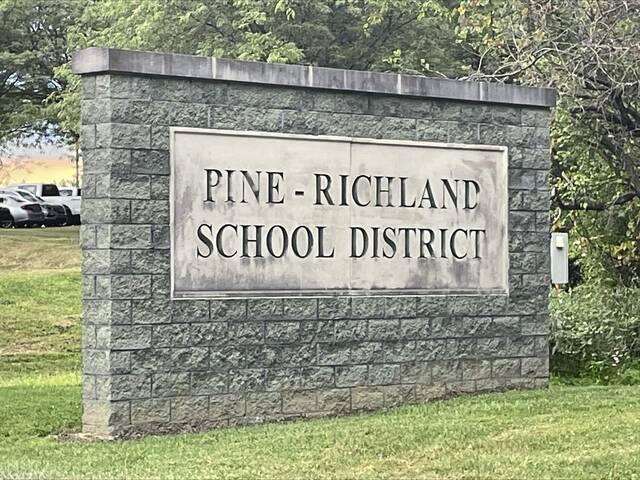The Pine-Richland School District is already well on the road to improving the environment by using buses powered by propane engines.
But reliance on fossil fuels could go the way of the dinosaurs with the addition of electric buses to the district’s fleet.
The district’s transportation provider, Student Transportation of America, announced that it recently received a grant from the Driving PA Forward-Truck and Bus Fleet Program.
“We are thrilled that STA was awarded a grant from the Driving PA Forward,” said Gene Kowalczewski, chief operating officer for the Wall, N.J.-based company. “This grant will go a long way to help us reach our company goals for greater sustainability.”
The pilot program at Pine-Richland is “a milestone in its effort to introduce battery-powered buses to city, suburban and rural communities across the nation,” company officials said in a news release announcing the program.
The grant will be used to buy three electric school buses that will be integrated into STA’s current fleet of propane-powered school buses at Pine-Richland.
STA has 86 buses in its fleet for Pine-Richland. Of that, 62 operate on propane, according to Colleen McAndrew, who manages the district’s bus depot in Richland. Ten of the buses use diesel fuel and there are 20 gasoline-powered vans that are not available with alternative-fuel engines, she said.
The bus company also is partnering with Duquesne Light to install Level 2 electric vehicle charging stations at its bus terminal.
Level 2 chargers provide between 10 and 20 miles of driving for each hour of charging time, according to the U.S. Environmental Protection Agency. A Level 1 charger, which is typically supplied with electric cars and SUVs, provides 1 to 5 miles for every hour, according to the agency.
The electric buses are being purchased from International and are expected to be delivered sometime during the 2022-23 school year.
“Student Transportation of America has its sights on becoming an industry leader in the movement toward electric vehicles,” said Ron Halley, the company’s vice president of fleet and facilities. “Reducing our consumption of fossil fuels is not only the right thing to do for the environment, but the right thing to do for our communities and our valued business partners.”
STA launched a pilot program last fall in Canada with 1,000 buses to track battery life, monitor components and collect other key data.
Halley said the pilot programs provide “actionable intelligence into the performance of electric vehicles in distinct operating environments” that will be used to determine how best to deploy them in urban, suburban and rural areas.
Superintendent Brian Miller said the district is excited that it was chosen for the pilot program.
“When we began our relationship with STA almost seven years ago, we chose to operate a propane fleet,” he said. “Last summer, we extended the contract with STA as a key partner for another seven years with a continued emphasis on our propane fleet.
“The opportunity to be part of this EV pilot aligns directly with our strategic focus on sustainability. We are so proud and excited to see the environmental impact of this pilot and to use it as an opportunity to learn,” Miller said.
STA has replaced 2,700 of the 16,000 vehicles it operates in the U.S. and Canada with ones that operate on alternative fuel sources, according to the company.
Kowalczewski said expanding the use of electric buses will require collaboration with manufacturers.
Kelly White, director of emobilitybusiness development for International’s parent company Navistar, agrees that working with dealers and customers is an important part of achieving its commitment to “a zero-emission future.”
“We understand that the vehicle purchase is just one part of the entire adoption process,” White said. “To ensure a successful transition to electric vehicles, Navistar and our dealers support customers as they navigate the electric vehicle ecosystem.”
White said the company assists buyers with assessment and consultation services before vehicles are bought, which includes help with obtaining grants and adding the infrastructure needed for charging stations.



